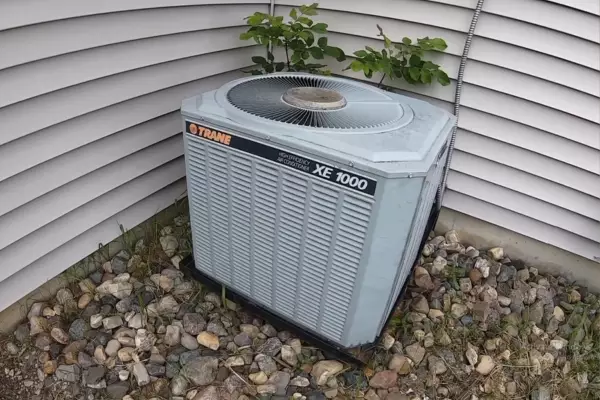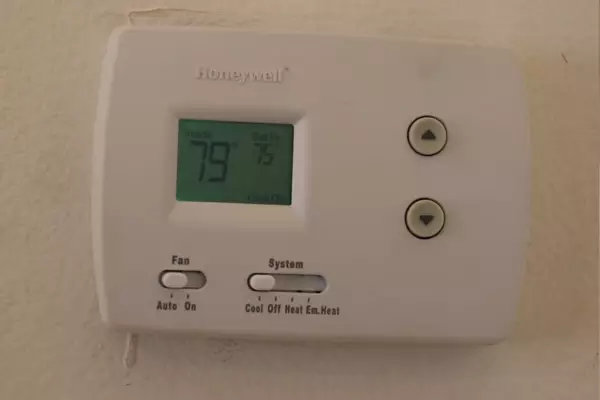Air conditioner units play an essential role in our comfort, especially during those hot summer days. They provide a cool, refreshing atmosphere that keeps our homes and workplaces habitable even in the highest temperatures. An integral part of these units is the fuse, a small, often overlooked component that plays a crucial role in their functioning.
A fuse in your AC unit acts as a protective shield, preventing the system from damage due to power surges or overheating. It’s a safety device designed to cut off the electrical circuit when the current surpasses a safe level. Therefore, if your air conditioner is blowing fuses frequently, it’s a sign that something is amiss and requires your attention.
With a blown fuse, your air conditioner ceases to function, leaving you stuck in the unbearable heat. While this problem is inconvenient, understanding why this happens and what you can do about it is crucial to safeguarding your comfort.
Contents
Spotting a Blown Fuse in an Air Conditioner
Symptoms of a Blown Fuse
Identifying a blown fuse in your AC unit can be quite simple if you know what to look for. Some common symptoms include:
- Your air conditioner not turning on.
- The AC unit abruptly stops working.
- Air conditioner not cooling even when it’s on.
Confirming a Blown Fuse
To confirm whether your AC unit has a blown fuse:
- Access the fuse box in your air conditioner.
- Inspect the fuse visually; if it’s discolored or melted, it’s likely blown.
- For a more reliable test, use a multimeter to check for continuity.

Common Reasons for AC Blowing Fuses
Understanding why your AC keeps blowing its fuses is crucial in preventing future fuse blowouts. Some of the common reasons include:
AC Unit Age and Fuse Issues
Older AC units have undergone years of wear and tear, which can affect their efficiency. As the components age, they can deteriorate, leading to an increased energy requirement for the unit to function effectively. This increase in energy demand can strain the electrical system, leading to more frequent fuse blowouts. It’s essential to monitor older AC units closely and consider replacing them if they constantly blow fuses, as this could be a sign of a more serious underlying issue.
Air Filter and AC Fuse Problems
The air filter in your AC unit plays a critical role in maintaining the system’s efficiency by preventing dust and other particles from entering the unit. Over time, these filters can become clogged, making it harder for the AC to draw in air. This added strain can increase the unit’s energy consumption, leading to an overload of the electrical system and a blown fuse. Regularly replacing your AC’s air filter can help to prevent this issue.
Damaged Wiring Impact on Fuses
Faulty or damaged wiring within your AC unit can lead to short circuits, causing a surge in electrical current. If the surge exceeds the fuse’s rated capacity, it will blow to protect the rest of the AC unit from damage. Regular inspections and prompt repairs of damaged wiring can prevent fuse blowouts due to short circuits. It’s recommended to hire a professional for this task, as working with electrical wiring can be hazardous without the necessary expertise.
Overworking AC and Blown Fuses
During hot weather, it’s common for AC units to work harder and longer to maintain a comfortable indoor temperature. However, overworking your AC can overload its electrical system, leading to blown fuses. It’s essential to give your AC unit breaks and consider using other cooling methods like fans during extremely hot days to reduce the strain on your air conditioner.

Addressing the Root Causes
Once you’ve identified the cause of the fuse blowouts, the next step is to address these issues to prevent future occurrences.
Regular Maintenance to Prevent Fuse Blowouts
Routine maintenance of your AC unit, including cleaning and replacing filters, inspecting and repairing wiring, and checking for other potential issues, can help to prevent fuse blowouts. It’s best to schedule regular AC maintenance with a professional technician who can identify and fix problems before they escalate.
Proper Wiring Checks and Repairs
If your AC unit’s wiring is damaged, it’s important to have it repaired promptly to prevent short circuits and other electrical issues. Always hire a certified professional for this task, as it requires technical expertise and can be dangerous if done incorrectly.
Ensuring Correct Fuse Specifications
Using the correct type and rating of fuse for your AC unit is crucial in preventing fuse blowouts. Fuses are rated based on the maximum current they can handle before blowing. If the fuse rating is too low for your AC unit’s energy consumption, it will blow frequently. Always refer to your AC unit’s manual or consult a professional to ensure you’re using the correct fuse.
Avoid Overworking Your AC
Making sure your AC unit isn’t overworked can help prevent fuse blowouts. During hot weather, consider setting your AC at a slightly higher temperature, using fans to assist in cooling, and turning off the AC unit when it’s not needed. This can reduce the strain on your AC unit, minimizing the risk of blown fuses.
Professional Solutions to AC Fuse Blowing
While some preventive measures can be undertaken by homeowners, others might require professional intervention.
Why Professional Help Matters
Professional AC technicians have the skills and experience to identify and fix potential issues that could lead to fuse blowouts. They can also provide advice on maintaining your AC unit and preventing future problems.
Hiring Qualified AC Technicians
When hiring a technician, ensure they are qualified and experienced in handling AC units similar to yours. This will ensure they can provide effective solutions to prevent fuse blowouts and enhance the performance of your AC unit.

Preventive Measures: Stop Blowing AC Fuses
Maintaining your AC unit’s health and performance involves taking preventive measures.
Importance of Scheduled AC Service
Scheduling regular AC service can help to identify potential issues before they escalate, reducing the likelihood of fuse blowouts. Services include cleaning, inspection, filter replacement, and other necessary maintenance tasks.
The Role of Regular Air Filter Replacement
Regularly replacing your air filter is essential in maintaining your AC unit’s efficiency and preventing fuse blowouts. A clean air filter allows for easier airflow, reducing the strain on your AC unit.
Ensuring Proper AC Usage
Proper use of your AC unit includes setting an appropriate temperature, giving it breaks during hot days, and using other cooling methods to reduce the load on the AC unit. These measures can help prevent overloading the system and causing fuse blowouts.
Frequently Asked Questions
Why does my AC keep blowing fuses?
Frequent fuse blowouts in your AC can be due to several reasons, including an aged AC unit, clogged air filters, damaged wiring, or overworking the system.
Can I replace a blown fuse myself?
Yes, replacing a blown fuse is relatively straightforward. However, it’s essential to ensure you’re using the correct type of fuse. If you’re unsure, it’s better to hire a professional.
How can I prevent my AC from blowing fuses?
Regular maintenance, proper wiring, using the appropriate fuses, and not overworking your AC are effective ways to prevent fuse blowouts.
Conclusion
Maintaining the comfort of your home or office involves ensuring your AC unit functions effectively. Identifying the causes of frequent fuse blowouts and addressing them promptly can save you from the inconvenience of a malfunctioning AC unit.
The key to preventing fuse blowouts lies in regular maintenance, correct usage, and timely professional intervention when needed. By taking these steps, you can ensure the longevity and efficiency of your AC unit, guaranteeing a comfortable environment throughout the year.
Investing time and effort into caring for your AC unit is not just about preventing fuse blowouts. It’s about ensuring a refreshing, comfortable atmosphere in your living or workspace, contributing to your overall well-being and quality of life.

